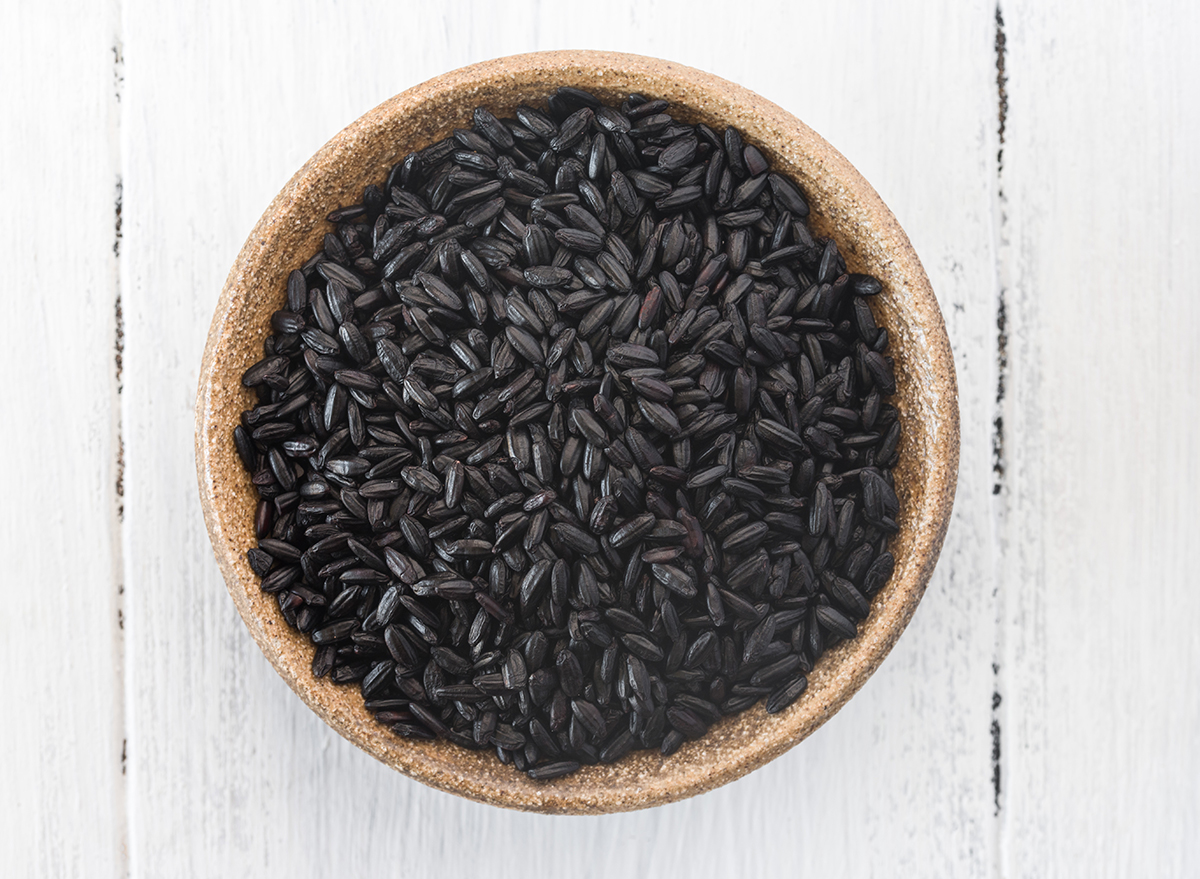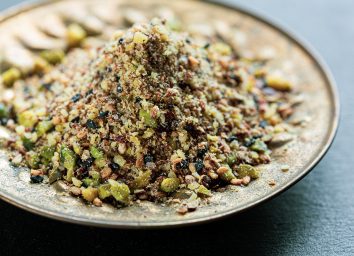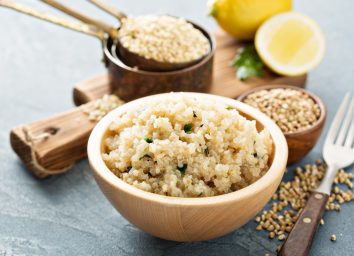Black Rice: The Exotic Grain That Maximizes Your Nutrient Intake

Additional reporting by Kelsey Hampton, MS, RDN, LD, CSSD
White, wild, long and short are attributes you have likely heard of in relation to rice, but have you heard of purple or forbidden rice? These are different names for what is more commonly called black rice, a grain that has gained popularity amongst a wide variety of cuisines in recent years. But why choose black rice over more common white and brown rice? There are a few very good reasons. Here is what you need to know about black rice and its benefits.
What is black rice?
This ancient grain gets its dark pigment from a compound called anthocyanins, and was dubbed forbidden rice because it was considered so unique in ancient China that it was reserved only for the Emperor. While it has remained popular in different areas of China, the usage of black rice has begun to spread worldwide. Whether used for the visual appeal on a plate or for its nutritious benefits, chances are you will see more of this grain in years to come.
What are its health benefits?
In addition to providing color, the anthocyanins compound also functions as an antioxidant and provides many of the health benefits associated with black rice. In fact, black rice has been documented to have the highest antioxidant content amongst black, red, and brown rice varieties.
Antioxidants help to "rebalance" harmful free radicals that can damage a number of different areas in the body. Therefore, the benefits of antioxidants can be quite far reaching. Many studies have been conducted in relation to antioxidants, including anthocyanins, and some of the noted benefits include playing a role in preventing cardiovascular disease, diabetes, cancers, and microbial infections.
In addition to the anthocyanins, black rice is rich in flavones and carotenoids as well. Flavonoid compounds have been documented to decrease risk of developing and dying from cardiovascular disease , while carotenoids are proven to have beneficial effects on eye health.
While many of these benefits are implicated in disease prevention, the macronutrient composition of black rice provides some benefits of its own. Compared to other forms of rice, black rice has a higher protein content which may be especially beneficial for someone looking for plant-based sources of protein. Additionally, black rice also contains slightly more iron, than brown rice.
Is black rice healthier than brown or white rice?
There are many similarities between black rice and its more common counterparts, white and brown rice. They all share a very similar nutrition profile: just over 350 calories per a 100-gram serving, carb content ranging from 76 grams to 83 grams per serving, and very low fat content. Additionally, black and brown rice share a similar fiber content of about 2 grams per serving.
While these components are all on par, the protein and micronutrient content of black rice stands out above the rest. Maximizing nutrient density is a health practice everyone can benefit from. This means choosing foods that pack a hefty concentration of nutrients into a relatively small amount of calories. While white and brown rice can be used as part of a well-rounded diet, black rice does a much better job of nutrient density, providing a broader spectrum of nutrients.
What does it taste like?
In its dry form, black rice has an opaque black coloring, and once cooked, takes on a purple hue. The texture of black rice has been described as spongy and sticky, although more dense and chewier than white rice. The flavor is more complex and robust, giving off hints of black beans. Another positive of black rice is it takes less time to cook than brown rice, with a cook time closer to 30–35 minutes compared to 45–50 minutes for brown rice. Try it in a buddha bowl, in a fried rice, or a soup.
Where to buy it
While black rice has more health benefits than white and brown rice, it is not as easy to find and it's slightly more expensive (about $4-$6 per pound). Specialty grocers, international markets, health food stores, and Amazon, are currently the most likely place to find black rice.








